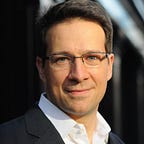Beyond COVID-19: Refugees and the value of life paradox
It is astonishing to see how willing we are to fundamentally change our routines and behaviors in light of the COVID-19 crisis. We are ready to shoulder great individual and collective cost to protect human life. Let’s be bold: with little costs we can save the lives of refugees and reboot our system of international protection.
Barring a few exceptions, all countries affected by the current pandemic have adopted significant behavioral changes. Working remotely has become the norm for much of the workforce overnight. Restaurants, barber shops, theaters, and concert halls remain closed. There are exceptions. But social and physical distancing has taken hold astoundingly quickly and for large parts of our societies.
The cost of these actions is enormous. Acknowledging the impact for the economy alone, the UK government approved a special economic package of UK $400 billion, and US policymakers readied US$ 2 trillion. Social distancing measures have also direct and indirect health cost — including for mental health during social isolation.
These costs occur not only because of the virus itself but because of the collectively chosen response: social distancing and its impacts on the labor market and consumption. The common rationale for this is not to save our own lives. Our actions are based on the understanding that the virus will only be fatal for 1–3% of those infected and predominantly for the elderly and those with serious health issues. Thus, those who don’t belong to at-risk groups are willing to incur significant financial, emotional and human costs to protect the lives of a relatively small part of our vulnerable population.
This is good. Human life is inherently valuable. But it is astonishing because it contradicts how we choose to act in many other scenarios. Our unequal regard for the value of life is particularly striking if we look at refugees.
Five years ago, about a million refugees entered Europe, mostly from war-torn Syria. While Germany’s chancellor Angela Merkel boldly stated, “we can do this,” other leaders were reluctant to take any responsibility. Soon after, Germany proposed paying Turkey to keep refugees from coming into the European Union. In his new book Refuge beyond Reach, sociologist David FitzGerald shows how the EU further securitized its external borders and supported human-rights abusing warlords in Libya and elsewhere to curb unofficial crossings to the continent.
Every week, men, women, and children lose their lives trying to reach safety. And many more are confined to prison-like camps that offer little more than bare life. Out of the 7.7 billion people living on the planet, fewer than 26 million are refugees. This means, for every 1,000 persons in the world, there are only three refugees. 85% live in developing countries and less than 1% of refugees are being formally resettled. The fear of right-wing populists cashing in on cultural and economic fears has reduced many governments’ willingness to protect refugees. Even if admitting relatively large numbers of refugees led to short-term losses, these costs would be negligible, compared to the cost we are willing to shoulder because of COVID-19 measures. And we know that refugees and migrants are generally net contributors to social welfare and tax systems, which means that they pay more than they take. During the COVID-19 pandemic many refugee doctors and nurses staffed hospitals or worked in other essential capacities. They add skills, ideas, and labor. Thus, in the medium term, this will be beneficial. So why not do it?
At the first Global Refugee Forum in December 2019, UN High Commissioner for Refugees Filippo Grandi asked to “reboot” the international community’s stance on people in need of protection. Our collective reaction to the COVID-19 crisis gives hope that under the right circumstances we can act together to protect lives. The time has come to realize that societies, city, state, and national governments need to commit to offering refugees opportunities to live decent lives. Admitting them temporarily or permanently will require a fraction of the economic resources and social readjusting that working from home while homeschooling has required. Shifting our focus from militarizing borders and pushing back boats and caravans of those seeking refuge will free resources and in the end be beneficial for all.
Until now, we’ve been too passive to do what needs to be done to allow our contemporaries to lead a decent life. COVID-19 has taught us that global and local communities can quickly come together to act in response to save lives. June 20 is World Refugee Day and we need to turn our collective attention to solving the paradox of caring for some lives and not for others. Let’s be bold and act as if we cared about human life. I believe we can.
